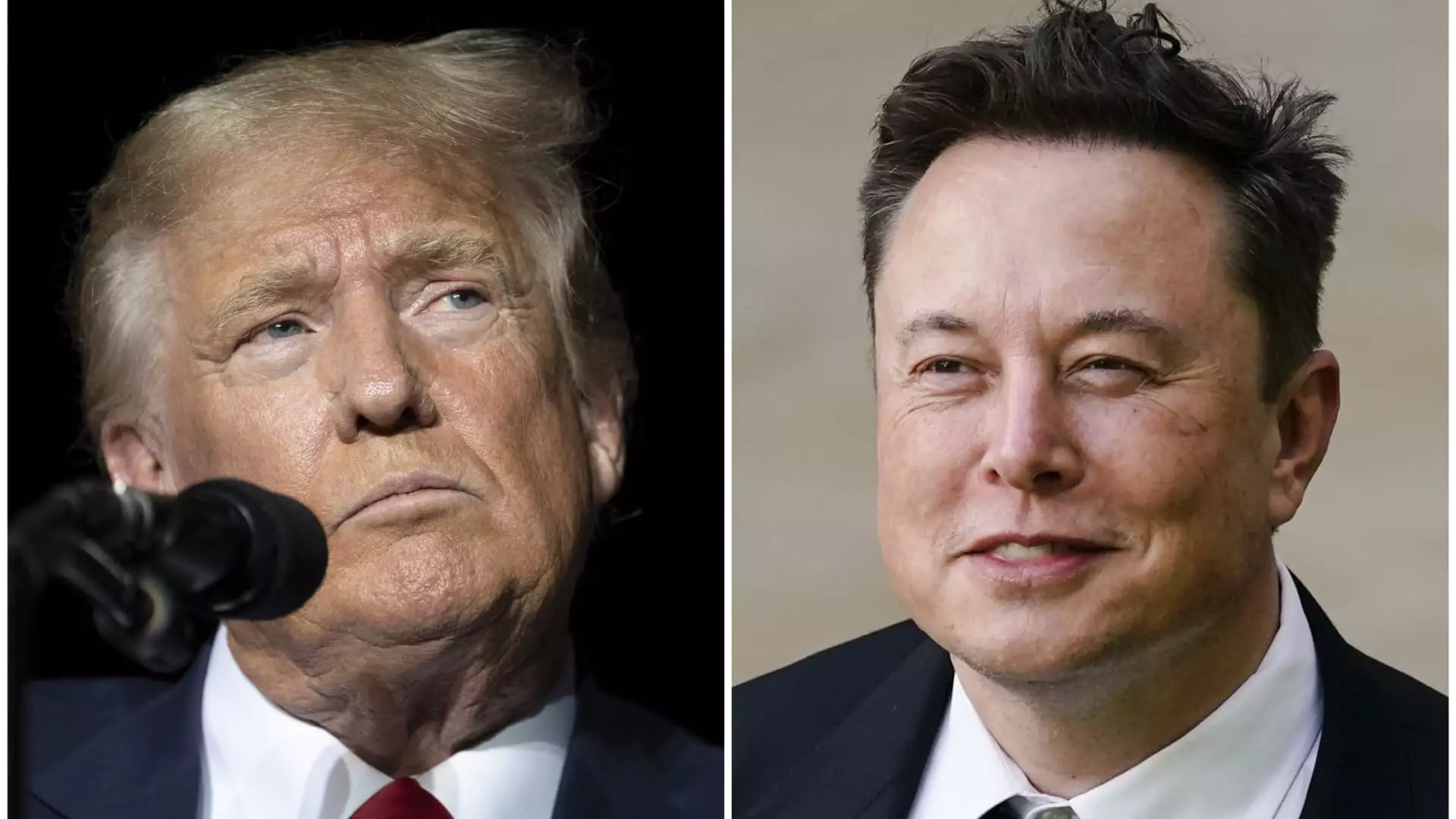In a dramatic turn of events, Elon Musk recently suggested that major tech players, including OpenAI, Oracle, and SoftBank, lack the financial resources to follow through on their ambitious commitment of $500 billion towards constructing a robust artificial intelligence infrastructure in the United States. This assertion emerged shortly after President Donald Trump introduced the Stargate project at a White House event—a plan that promises significant economic impact by creating over 100,000 jobs. Musk’s remarks have sparked debate, raising questions about the credibility of both the commitments made by these companies and the underlying motivations driving Musk’s comments.
Musk explicitly criticized the liquidity of SoftBank, claiming it had secured less than $10 billion for this initiative. He expressed his skepticism through social media on X, perceiving these pledges as over-ambitious. This situation reveals Musk’s contentious relationship with the aforementioned companies, particularly OpenAI, a firm he helped establish and one that has often been at the center of discussions regarding AI ethics and governance. Musk’s remarks are not merely statements of financial fact but seem to also indulge in personal animosity, thereby colorfully complicating the narratives surrounding the future of AI investment.
Sam Altman, the CEO of OpenAI, responded directly to Musk’s assertions, depicting Musk as both a figure of respect and contention. His response highlighted not only a disagreement over financial realities but also an underlying tension regarding their differing views on the future of AI. Altman acknowledged Musk’s entrepreneurial legacy but challenged his claims about SoftBank, emphasizing that his statements were not well-founded. Furthermore, his ventures into the political realm have brought scrutiny, as Altman urged Musk to prioritize national interests over corporate gains.
What becomes clear from this exchange is the fracture in what has historically been a collaborative spirit among Silicon Valley’s tech titans. Musk’s comments pulled back the curtain on a rivalry that might be driven by numerous factors, including business rivalries and differing visions for AI’s societal roles. The discord raises critical questions about accountability in large-scale projects that inevitably shape the socio-economic landscape of the nation.
Trump’s announcement of the Stargate project, which promises to invest $500 billion in AI infrastructure, coincides with broader political and economic currents in the United States. With technology companies at the helm, this initiative aims to position the country as a leader in AI advancements at a time when rivals like China are gaining momentum. Trump, during the announcement, positioned AI as a beacon of economic hope, further underlining the importance of infrastructure in driving innovation.
While the economic potential of AI infrastructure is undeniable, the skepticism surrounding the feasibility of such government-backed investments raises significant concerns. The portrayal of these tech giants as financially capable players was countered by Musk’s stark assessment, highlighting the dichotomy between grandiose pledges and hard financial realities.
In light of Musk’s criticism, OpenAI reaffirmed its commitment, announcing an immediate deployment of $100 billion in the project, a statement accompanied by significant stock market reactions as Oracle shares surged. The engagement of high-profile investors, including SoftBank and Oracle, reflects an urgent necessity to showcase viable funding strategies and actions that can validate claims of committed investments.
Yet, as the drama unfolds, it is crucial to analyze the practical implications of promises made by these corporations. Investment projections of this magnitude require not only sound financial backing but also a resilient strategy that contemplates the socio-political landscape. This includes addressing issues such as regulatory oversight, ethical AI deployment, and workforce implications, which collectively contribute to the broader narrative of trust in technology’s role in society.
The unfolding confrontation between Musk and Altman, against the backdrop of Trump’s ambitious AI infrastructure initiative, strains the general perception of collective efforts to progress technology in America. As the AI discourse matures, it is paramount for the stakeholders involved to move beyond rhetoric and towards realistic execution. The dynamic of competition and cooperation within the technology sector will ultimately determine whether these visions can translate into actionable results that benefit the economy and society at large.
In navigating these waters, clarity of purpose, financial accountability, and a focus on ethical standards must guide technology leaders in their quest to elevate AI as a cornerstone of innovation rather than merely a battleground for personal and corporate rivalries.


Leave a Reply